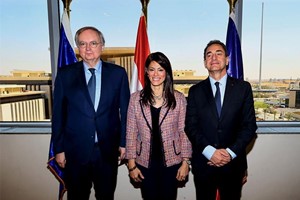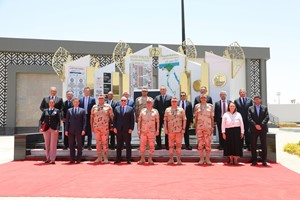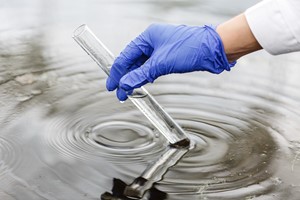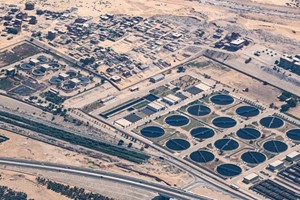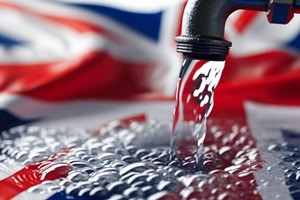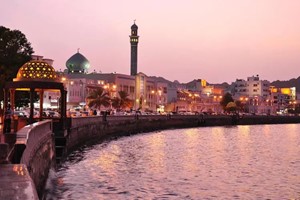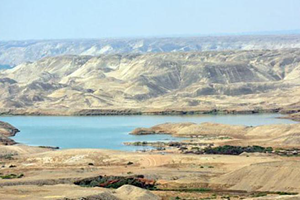In a landmark collaboration, France and the European Union (EU) have solidified their commitment to Egypt's sustainable development endeavors through a significant financing initiative. The Ministry of International Cooperation has announced a momentous agreement, securing 61.5 million euros to propel the advancement of the Yellow River Water Treatment Plant project in Egypt.
Under the astute leadership of Minister Rania Al-Mashat, the ministry has inked two pivotal agreements. A developmental financing agreement worth 50 million euros, alongside a generous 1.5 million euro grant, has been sealed with the esteemed French Development Agency (FDA). Furthermore, a strategic alliance with the EU has resulted in a 10 million euro grant, culminating in a substantial total funding package.
This infusion of financial support is strategically channeled towards the third phase of the Yellow River project, aimed at bolstering wastewater treatment capabilities to accommodate Cairo's burgeoning populace. With projections estimating a service reach of 17.5 million by 2040, this initiative underscores Egypt's proactive stance in addressing critical infrastructure needs.
Notably, the Yellow River project is slated to emerge as a cornerstone in Egypt's water treatment landscape, not only catering to local demands but also poised to become a benchmark across the Middle East and Africa. By harnessing innovative techniques, the treated water will serve multifaceted purposes, including agricultural irrigation, thereby fortifying climate resilience efforts and augmenting water resource diversity.
Embracing the ethos of circular economy, the project integrates sustainability principles by converting treatment sludge into biogas—a renewable energy source set to power a substantial portion of the plant's electricity demands. This eco-conscious approach not only mitigates carbon emissions but also exemplifies Egypt's commitment to green initiatives.
Beyond its infrastructural significance, the Yellow River project heralds a paradigm shift in Egypt's developmental landscape. It promises to foster employment opportunities during construction while facilitating knowledge exchange in wastewater treatment methodologies. Furthermore, the anticipated enhancement in water quality and accessibility is poised to elevate public health standards across the region.
The resounding confidence exhibited by international stakeholders underscores Egypt's prowess in executing transformative projects while upholding environmental stewardship. Minister Al-Mashat accentuates the project's alignment with the sixth Sustainable Development Goal, emblematic of Egypt's steadfast dedication to universal access to clean water and sanitation.
Against the backdrop of a comprehensive development agenda, Egypt's strides in sustainable water resource management are commendable. Deputy Housing Minister Sayed Ismail underscores the pivotal role of the Yellow River project in materializing the state's vision for enhanced water treatment and societal well-being.
Echoing this sentiment, the French ambassador to Egypt reaffirms France and the EU's unwavering commitment to fostering strategic partnerships, particularly in bolstering water security and management. Ambassador Christian Berger, representing the EU delegation in Egypt, emphasizes the collaborative ethos underpinning the project—a collective endeavor aimed at sculpting a healthier future for Egypt's communities while championing environmental preservation.
The Yellow River Water Treatment Plant project stands as a testament to the power of collaboration in propelling sustainable development initiatives. With unwavering support from international allies, Egypt is poised to chart a course towards a more resilient and prosperous future, anchored in principles of sustainability and inclusivity.
By Doaa A.Moneim




